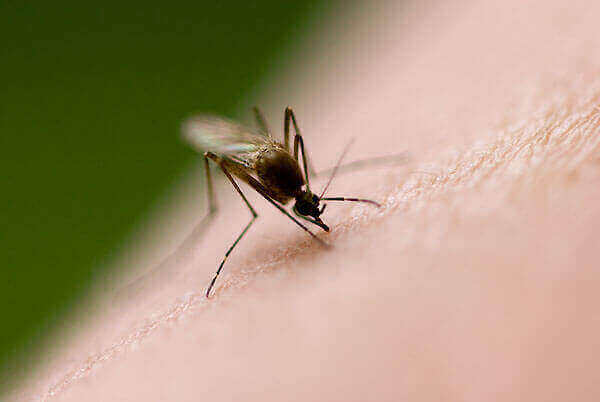Spring break travel: No bites, no burns, no STIs
Heading south for spring break, study, or work? With a little preparation, you can avoid bringing home unwanted souvenirs. Be sure to pack your insect repellent, condoms and SPF 30 sunscreen.
In recent months, the Zika virus has made its way to many popular spring break destinations, including Mexico, Costa Rica and the Dominican Republic. If you plan to travel abroad, avoid trouble in paradise and minimize your risk of contracting Zika virus. In addition to packing SPF 30 sunscreen and condoms, protect yourself with insect repellent containing at least 30 percent DEET.

A mosquito feeds on the hand of Susan Paskewitz, a University of Wisconsin—Madison entomology professor and expert on mosquito species and mosquito-related public-health issues. Photo: Jeff Miller
Zika virus is primarily transmitted to people through mosquito bites, but may also be transmitted sexually. Dengue and Chikungunya viruses are also mosquito-borne and can be found in some of the same places as Zika virus. The Centers for Disease Control and Prevention recommend that travelers to countries where mosquito-borne viruses have been reported use insect repellent, wear long sleeves and pants, and use condoms while on vacation and after they return to minimize the risk to partners.
International travelers should visit a travel clinic before departure to learn about country-specific recommendations to prevent illness — including needed vaccines and medications — and get up-to-date information about their destinations from the U.S. State Department.
There is no vaccine to prevent Zika virus, nor is there medicine to treat it. In most cases, the virus causes either no symptoms or only a slight illness — fever, rash, red eyes, and joint pain — that typically lasts from several days to a week. Zika virus poses a particular risk to women thinking about becoming pregnant or who are pregnant — as well as their male partners.
If you’ll be in the sun, lather on an SPF 30 sunscreen or higher every two hours and limit your sun exposure between 10 a.m. and 4 p.m. when rays are the strongest.
After you return to campus, continue to use condoms to reduce your partners’ risk. Visit UHS if you develop fever or illness.
Contact the UHS Travel Clinic for more information, or visit the CDC site for updates. For campus travel resources, visit the UW-Madison International Travel site.
